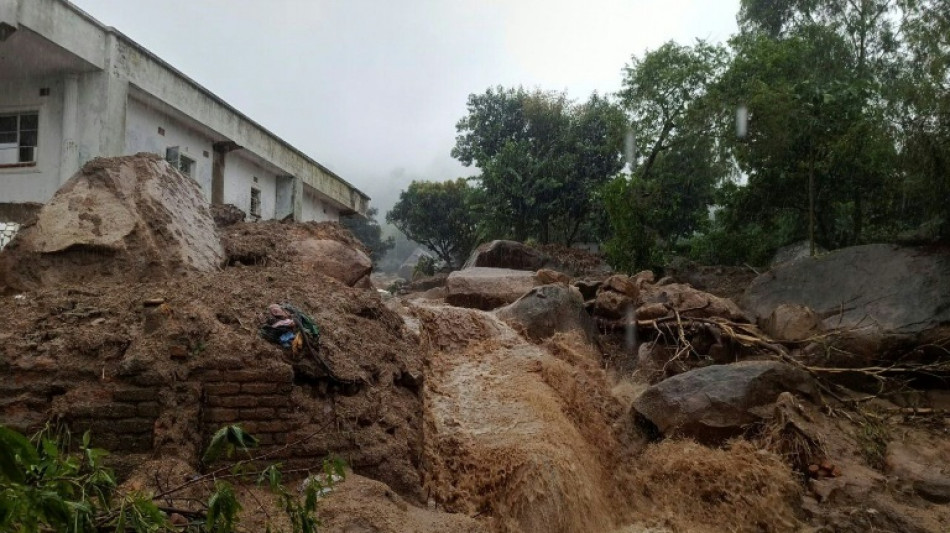

Malawi cyclone toll hits 190 as hopes for survivors fade
The death toll in Malawi from Cyclone Freddy nearly doubled to 190 on Tuesday after the record-breaking storm triggered floods and landslips in its second strike on Africa in less than three weeks.
After brewing off Australia in early February, Freddy traversed the Indian Ocean and made landfall on southeastern Africa in late February, before returning at the weekend to deliver a second punch.
"The death toll has risen from 99... to 190, with 584 injured and 37 reported missing," Malawi's Department of Disaster Management Affairs said.
Relief workers said they expected the tally to rise.
"The situation is very dire," said Guilherme Botelho, emergency project coordinator for Doctors Without Borders (MSF).
"There are many casualties, either wounded, missing or dead, and the numbers will only increase in the coming days," he said.
Many people perished in mudslides that washed away homes in the country's commercial capital, Blantyre.
Across the country, nearly 59,000 people have been affected and more than 19,000 displaced, with many now sheltering in schools and churches.
In Chilobwe, a township outside Blantyre, stunned survivors surveyed flattened houses and other structures as rain continued to fall.
Many feared people were still trapped beneath the muddy rubble of earthen bricks.
John Witman, in his 80s, dressed in a raincoat and woollen hat with his 10 family members in tow, stood in front of what had been his son-in-law's home. It was now just rocks and gushing water, the house having been swept away.
"I wish that we could find him, and find closure. We feel helpless because no one is here to help us," he said.
- 'Plenty of bodies' -
In Chimwankhunda, a few kilometres away, Steve Panganani Matera, wearing a high-visibility green jacket, pointed to a mound of mud.
"There were plenty of houses, but they are all gone," Matera said. "There are plenty of bodies down there in the mud."
Fourteen-year-old Mayeso Chinthenga said his family's house was taken by the cascading mud.
"We were out looking for firewood when we saw rocks rolling down the mountain so we ran for safety. Some of our neighbours died on the spot," he said at a nearby school.
Cyclone Freddy reached landlocked Malawi early on Monday morning after sweeping through Mozambique at the weekend.
Last week it unofficially broke the World Meteorological Organization's benchmark as the longest-lasting tropical cyclone on record, set in 1994 for a 31-day storm named John.
Researchers will now study whether Freddy is the new titleholder, a process likely to take months.
Freddy became a named storm on February 6, making landfall in Madagascar on February 21 and traversing the island before reaching Mozambique on February 24, claiming nearly two dozen lives in both countries and affecting nearly 400,000 people.
It then returned to the Indian Ocean and gathered new energy over its warm waters, the reversed course to come back much more powerful at the weekend, packing wind gusts of up to 200 km/h (125 mph), according to Emmanuel Cloppet of the Meteo-France weather service.
Meteorologists say that cyclones that track across the entire Indian Ocean are very infrequent -- the last occurred in 2000 -- and that Freddy's loopback was even more exceptional.
"It's a very rare thing that these cyclones feed themselves over and over again," said climate expert Coleen Vogel at South Africa's University of the Witwatersrand.
Fears of a cholera resurgence after the outbreak started in the aftermath of another tropical storm last year have been exacerbated by vaccines shortages.
"It's still early to tell if anything is going to happen, but we need to be vigilant to see if more cases will come," said MSF's Botelho.
V.Bertemes--LiLuX



